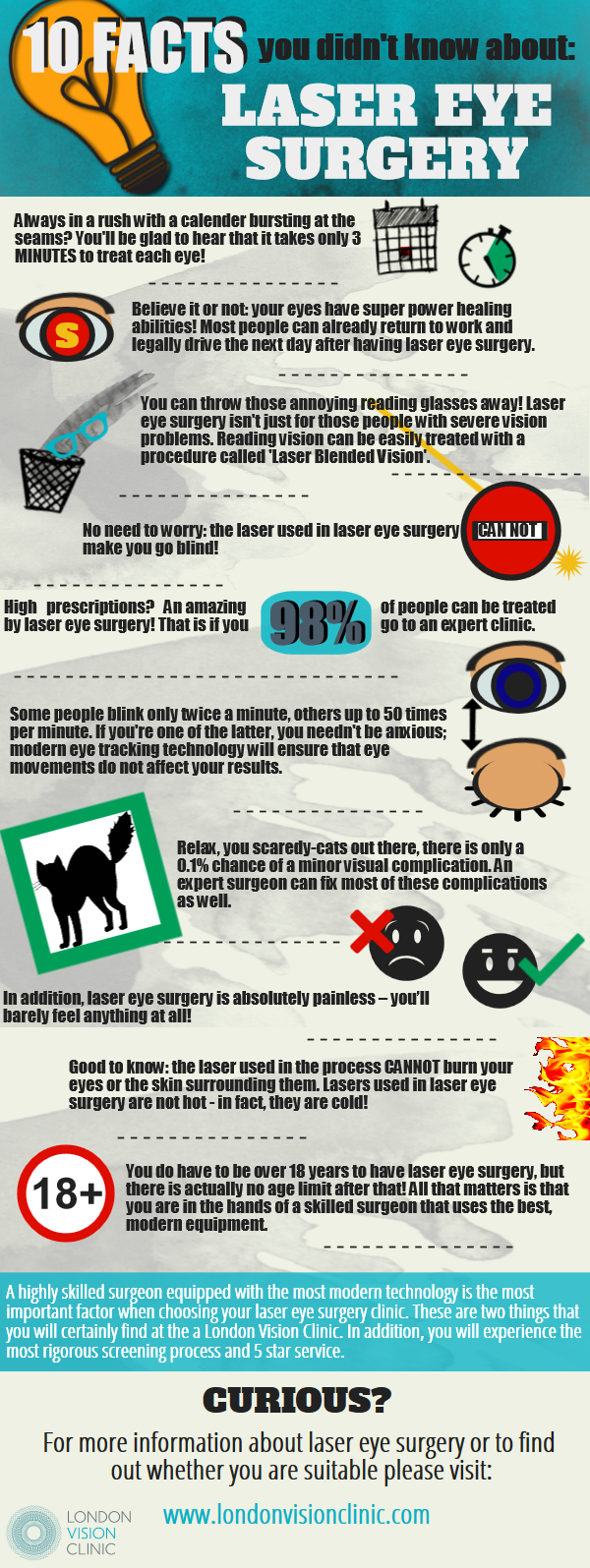Offering Look After A Loved One Planning For Cataract Surgical Procedure: A Caregiver'S Approach
Offering Look After A Loved One Planning For Cataract Surgical Procedure: A Caregiver'S Approach
Blog Article
Write-Up Composed By-Spencer MacLean
As a caretaker supporting a liked one dealing with cataract surgery, your function is vital in ensuring their convenience and recuperation. From pre-surgery prep work to post-operative treatment, your presence and support can make a substantial distinction in their trip. Recognizing cataract surgery and floaters and physical difficulties they may encounter, giving practical aid, and being their pillar of support are crucial elements in this process. Keep in mind, your function goes beyond simply supplying support; it has to do with being a source of strength and convenience throughout a substantial phase in their life.
Understanding Cataract Surgical Treatment Refine
Discovering the steps associated with cataract surgical treatment can aid alleviate any type of stress and anxiety or unpredictability you may have concerning the procedure. Cataract surgical treatment is a typical and highly effective treatment that includes getting rid of the over cast lens in your eye and replacing it with a clear artificial lens.
Before the surgical procedure, your eye will be numbed with eye drops or an injection to ensure you do not feel any kind of discomfort throughout the procedure. The specialist will certainly make a tiny incision in your eye to access the cataract and break it up using ultrasound waves before meticulously removing it.
As soon as the cataract is eliminated, the synthetic lens will certainly be inserted in its location. The entire surgery normally takes about 15-30 mins per eye and is usually done one eye at once.
After the surgical treatment, you might experience some moderate pain or obscured vision, but this is normal and should boost as your eye heals.
Readying for Surgical Treatment Together
To guarantee a smooth and trouble-free experience, getting ready for cataract surgical procedure with each other can make a significant difference in your enjoyed one's journey. Begin by attending pre-surgery assessments with them. In this manner, you can ask questions, comprehend the treatment, and provide emotional support.
Help them arrange their pre-operative guidelines, medicines, and transportation to and from the surgical center. See to it their home is ready for their healing by establishing a comfy space with easy accessibility to important items.
Aid them in arranging for post-operative treatment if needed, such as assist with dishes or house tasks. Urge read here to follow the physician's guidance pertaining to fasting before surgical treatment and medication methods.
Comfort them that you'll be there for them every step of the method. By actively joining the preparation process, you can minimize anxiousness and make certain that your liked one feels sustained and taken care of during this important time.
Post-Operative Treatment Tips
After cataract surgery, offering correct post-operative treatment is essential for your liked one's recuperation. Ensure they use the safety shield over their eye as instructed by the doctor. Help them provide prescribed eye decreases and drugs on time to prevent infection and help recovery.
Urge your enjoyed one to avoid touching or massaging their eyes, as this can result in problems. Help them in adhering to any type of constraints on flexing, raising hefty items, or taking part in strenuous tasks to prevent stress on the eyes. See to it they attend all follow-up consultations with the eye physician for checking progression.
Keep the eye area clean and completely dry, avoiding water or soap directly in the eyes. Motivate your liked one to use sunglasses to secure their eyes from bright light and glow throughout the recovery procedure. Hold your horses and supportive as they recuperate, offering assistance with everyday tasks as needed.
Verdict
Finally, sustaining an enjoyed one via cataract surgical procedure includes being there every step of the way, from pre-surgery preparations to post-operative care. Your emotional support, functional aid, and encouragement can make a substantial difference in their recovery procedure. By staying notified, organized, and alert to their needs, you can help make certain a successful end result and give them with the convenience and peace of mind they require throughout this difficult time.
